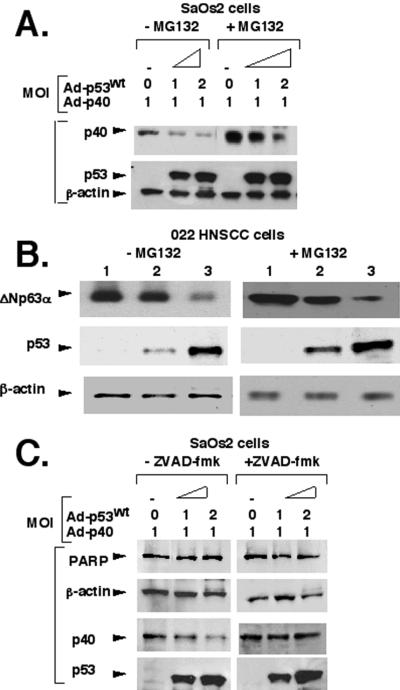Figure 5.
p53 mediates ΔNp63 (p40 or ΔNp63α) degradation through a caspase pathway. (A) The addition of MG-132 does not affect the p53WT-mediated p40 degradation, although overall levels of p53 and p40 are stabilized. SaOs2 cells were coinfected with a constant amount of Ad-p40 and various concentrations of Ad-p53WT for 14 h, followed by incubation without or with 20 μM MG-132 for 6–7 h. (B) MG-132 does not affect p53-mediated degradation of endogenous ΔNp63α protein in 022 cells. 022 cells were infected with Ad-p53WT (lane 1, MOI = 0; lane 2, MOI = 0.5; lane 3, MOI = 1) for 14 h, followed by incubation without or with 20 μM MG-132 for 6–7 h. (C) Z-VAD-fmk inhibits p53-mediated degradation of p40. SaOs2 cells were coinfected with Ad-p40 and Ad-p53WT (MOI = 0–1) for 14 h, followed by incubation without or with 10 μM Z-VAD-fmk for 6–7 h. Probes and antibodies used for detection are shown on the left. Under control conditions, p40 degradation continues, whereas it is inhibited by Z-VAD-fmk (p40 row). Levels of β-actin and poly(ADP-ribose) polymerase (PARP) were measured as internal controls.

